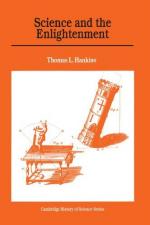
|
| Name: _________________________ | Period: ___________________ |
This quiz consists of 5 multiple choice and 5 short answer questions through Chapter 3, Experimental Physics.
Multiple Choice Questions
1. In Chapter 3, what was the name of the experimental tradition began in Western Europe during the Renaissance?
(a) Natural magic.
(b) Physics.
(c) Black magic.
(d) Practical magic.
2. All of the following were forms of fire, according to Boerhaave and Musschenbroek, except for which one?
(a) Electricity.
(b) Wood.
(c) Heat.
(d) Light.
3. By what name did natural philosophers want to be known as, according to the narrator in Chapter 1?
(a) Professors.
(b) Men of Honor.
(c) Masters.
(d) Men of Letters.
4. In the early years of the Enlightenment, the strongest support on the Continent for Newton's philosophy came from ________.
(a) Holland.
(b) Germany.
(c) America.
(d) Italy.
5. Who made the first extensive series of investigations of electricity in his book "De Magnete," according to Chapter 3?
(a) Abbe Nollet.
(b) William Gilbert.
(c) Robert Symmer.
(d) John Cuthbertson.
Short Answer Questions
1. From ________'s law of falling bodies, it was known that the heights would be proportional to the squares of the velocities at impact.
2. Who carried rational mechanics to the highest point of generality and abstraction that it was to reach during the Enlightenment?
3. What category of science, at the beginning of the Enlightenment, was "the science that teaches us the reasons and causes of all the effects that Nature produces," including both living and nonliving phenomena?
4. In 1688, Fontenelle wrote a treatise on the nature of the eclogue or ________.
5. According to the narrator in Chapter 1, who was one of the originators of the mechanical philosophy who believed there were no forces or powers in matter?
|
This section contains 253 words (approx. 1 page at 300 words per page) |

|




